17. Cube (1997)
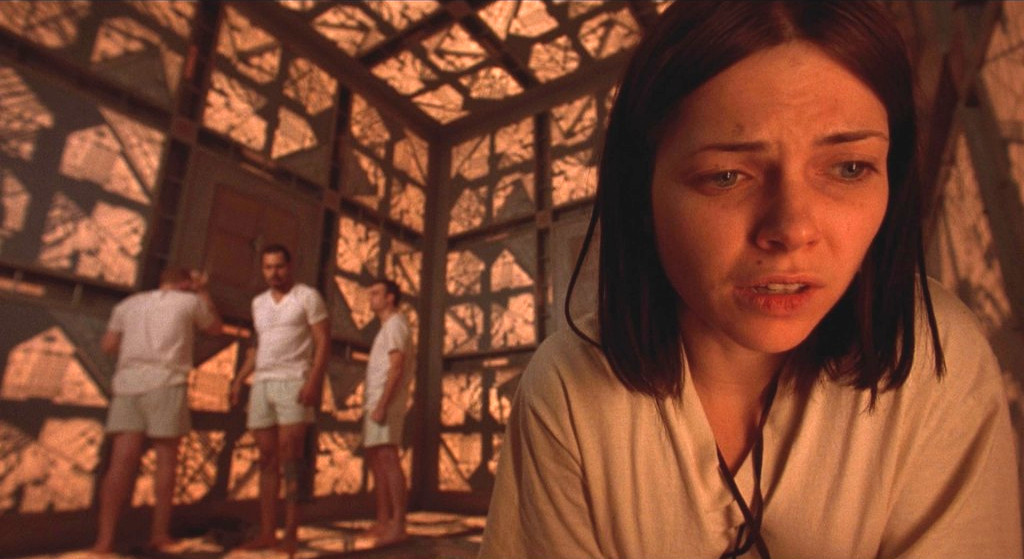
In what might be one of the most ingenious concepts for a low-budget genre movie, this sci-fi thriller features several random people waking up in cube-like rooms with no memory how they got there. As the group meshes together and try to navigate a way out, they discover it only leads to other rooms – some lethally rigged with deadly booby traps (acid to the face!), some not.
Filmed on one set (with different lighting setups), Vincenzo Natali’s debut never feels meagre due to its big, clever ideas, which grip you from its exciting opening to its tense ending. It’s filled with hair-pulling conflict and thought-provoking mystery, showing what filmmakers can do by concocting a killer premise and but withholding its clear answers, leaving much of the ‘how’s and why’s’ up to the audience’s own imagination. One of the best and most exciting brain teasers out there, Natali’s later work has yet to touch his ingenious debut.
16. Gozu (2003)
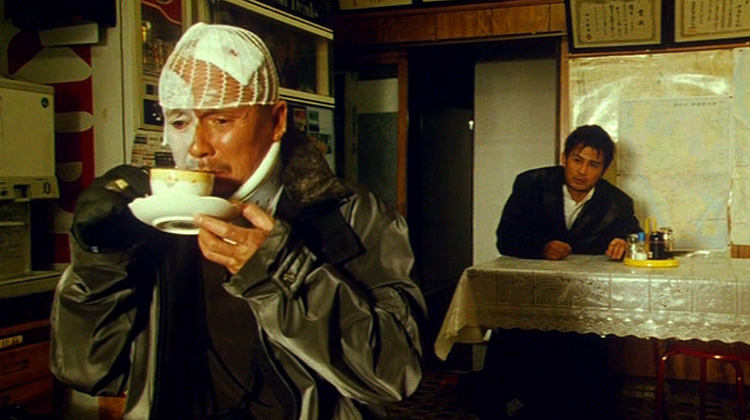
The highly prolific Japanese director Takashi Miike has specialised in all varieties of insanity with his films, so to call “Gozu” one of his weirdest is really a high bar for his work to somersault over. In its premise, this self-appointed ‘yakuza horror’ is pretty damn simple compared to most of his plots – lowly Yakuza Minami (Yuuta Sone) is charged with executing his friend and superior (Miike regular Sho Aikawa), who’s lost his mind. On the drive out to do the dirty, Aikawa vanishes and Minami wanders around a small town filled with wacky inhabitants, looking for his lost ‘brother.’
The simplicity of its premise lends itself the opportunity for Miike to infuse every moment with an offbeat, doom-laden tension and glazing the whole thing over with a mind numbing dreamlike logic. The entire piece is elaborately unbalanced and sways from darkly humorous to disturbingly unsettling, until it builds to a nauseating sucker punch of a conclusion.
15. Enemy (2013)
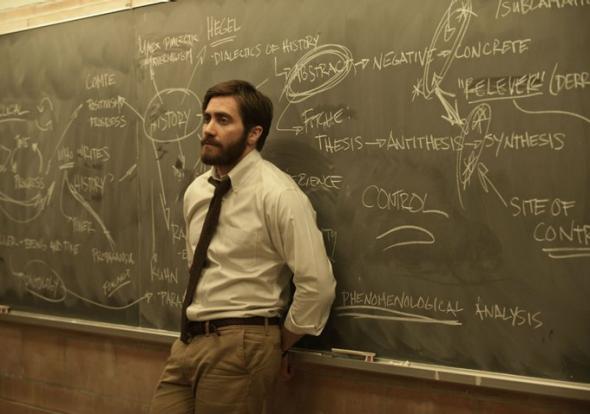
Before he was sending Amy Adams to talk to aliens, or Ryan Gosling to hunt down replicants, Denis Villeneuve was a unconventional indie director and one of the industry’s best kept secrets. Now, with his reevaluated popularity, this obtuse movie is bound to leave viewers looking toward his past entries utterly baffled upon discovery.
The director’s second mesmerising collaboration with Jake Gyllenhaal has his game actor pulled into a myriad of confusing plot and surreal twists as a timid professor discovers his doppelgänger (naturally also Gyllenhaal) who’s intent on taking over his life and bedding his wife. Weird sex, car crashes and giant spiders commence in this dumbfounding experience that literally no viewer will be able to make heads or tails of in one sitting. That isn’t a slight on the film, only a preparation for its demanding unpredictable narrative. Luckily, it’s coupled with delicate direction and a tour de force performance by Gyllenhaal.
14. Enter the Void (2009)
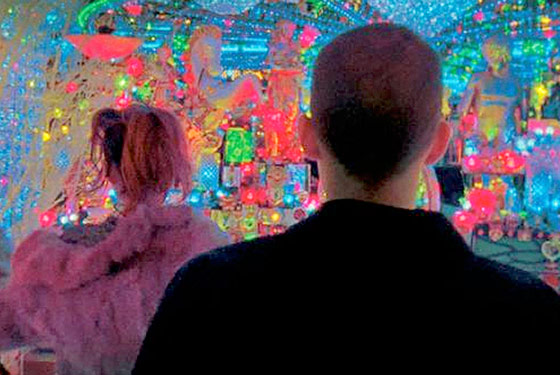
Never one for conventional moviemaking, Gaspar Noe has carved himself a reputation for a boundary-pushing and emotionally taxing filmography, yet with “Enter the Void” he has tasked himself with his most out-there concept – all told from the point-of-view of its protagonist, a foreign drug dealer (Nathaniel Brown) based in Thailand. When a deal goes bad, he ends up shot dead, but the film continues as we follow his perspective into the afterlife.
With Noe’s trademark handle on floaty and disorienting camerawork, he captures the essence of being a ‘spirit’ in an unforgettable visual capacity, with its plot delving in heavily to the Buddhist theory of afterlife (specifically “The Tibetan Book of the Dead”) as the aimless ghost moves through limbo, visiting loved ones and experiencing past memories. It’s a watch unlike no other as it tests one’s tolerance and opinions on existence after death in an unforgettable journey. There plenty of sadness to the piece but also hope, as Noe (for a change) manages to deliver a little sweet along with the bitter.
13. Lost Highway (1997)
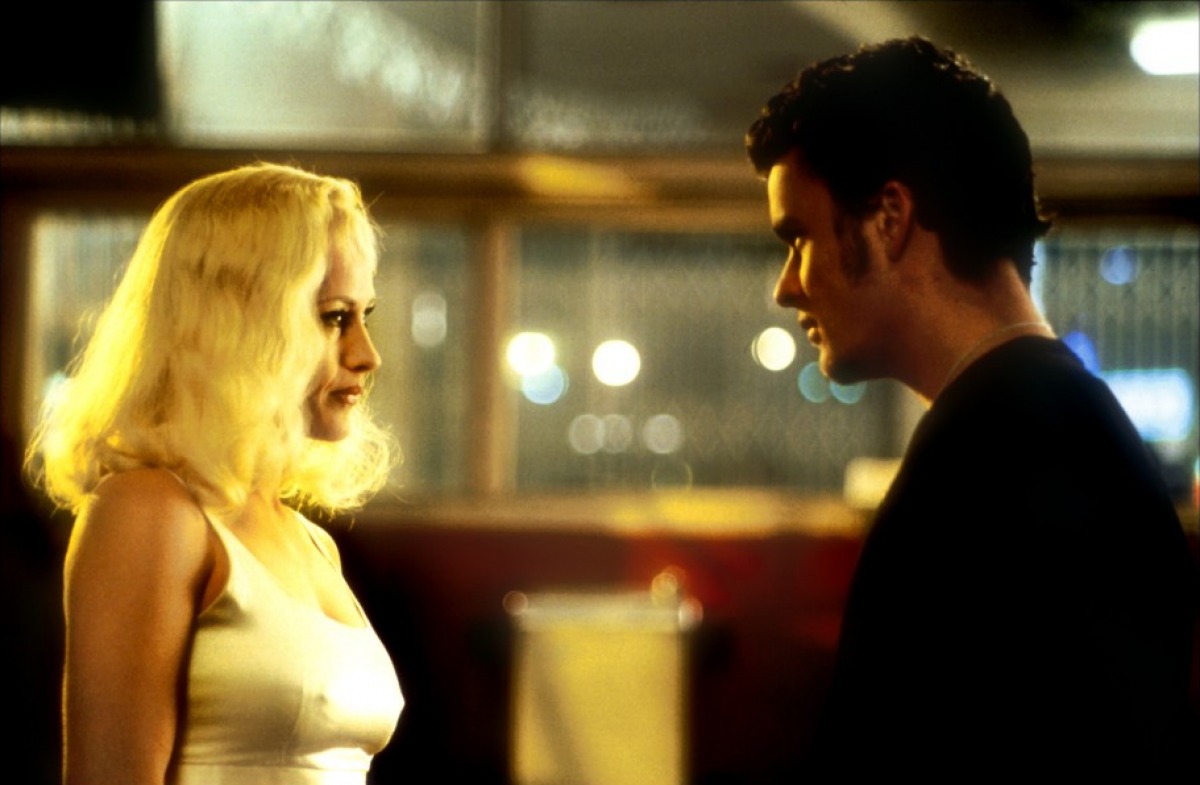
David Lynch’s career could easily fill up this entire list, from his striking debut “Eraserhead” (1977) to the haunting “Mulholland Drive” (2001), yet no film from his repertoire fits this article’s criteria more than his second collaboration with novelist Barry Gifford.
Focused around Bill Pullman’s severely depressed saxophonist and his crumbling marriage to Patricia Arquette, things get wild as a murder plot takes centre stage and Pullman effectively morphs into a whole other character (young mechanic Balthazar Getty), sending the film into bizarre crime/thriller territory. Regardless of its genre trapping, it’s the closest Lynch has come to straight horror outside his work on “Twin Peaks.”
It’s a film that winds a twisty road, and frustrates as much as it fascinates with Lynch diving headlong into his pet obsessions of film noir, tragic love, and doom-ladened fate. Still, for every moment, it has a sensible plot before violently swerving off-piste. It simply works as Lynch directs a dream/nightmare that operates on its own rules of logic, resulting in one of his strangest yet most essential films.
12. Videodrome (1983)
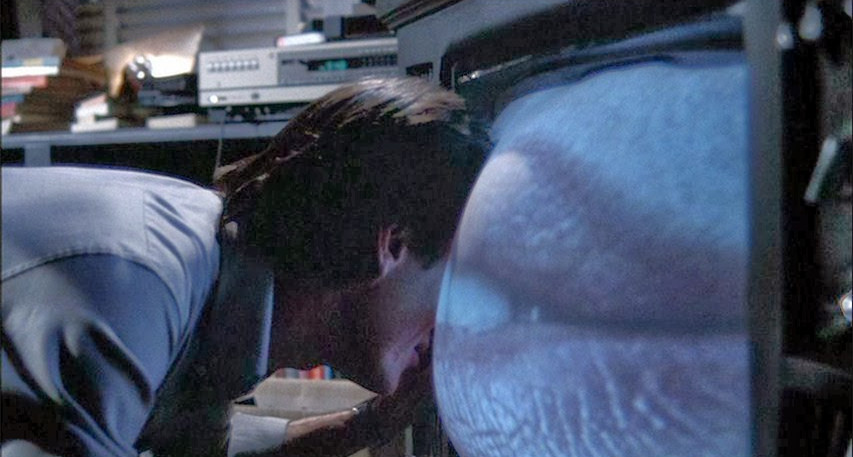
Early 80’s David Cronenberg was a filmmaker who stood out of the crowd, with a body of grisly outlandish horror films whose gross-out factor was only matched by an intellectual analytical execution – more Freudian then Herschel Gordon Lewis.
The director once explained that he was unable to “censor himself” due to the outlandishness of his films being so unique that audiences would be confused if it was only implied. There would be no better example than in this grimy and bizarre effort from him, featuring the unforgettable image where James Woods inserts a cassette tape into his newly formed stomach/vagina.
Featuring Woods’ sleazy network head who discovers a random signal on his TV featuring scenes of torture and graphic nature, the man becomes fascinated by its extreme darkness, yet the disturbing imagery begins to alter his psyche and eventually mutate his actual body (“Long live the new flesh!”).
Whilst the setup felt far-fetched upon its release, the movie has become oddly prophetic in the days of the internet, making any weird degradation available in our homes to vulnerable minds. It’s one of Cronenberg’s most aggressively gory films, filled to the brim with chilling imagery and left-field plot swerves, but as usual, it’s equalled with incredible food for thought as well.
11. Donnie Darko (2001)

One of the most impressive debuts of the last decade, Richard Kelly’s loopy smorgasbord of 80’s high school drama, wormhole tunnels, and sinister time-travelling rabbit men remains one of the most individual films ever made, period. It’s a dense and demanding mind puzzle full of bold concepts and even crazier thematics, yet the fact that the mysteries all lead to a satisfying answer is its true strength (regardless of the multiple viewings it might take to get there).
Jake Gyllenhaal’s first significant lead role has him as the titular Darko, a troubled high-schooler whose late night sleepwalking saves him from a swift death from an airplane engine crashing into his bed. This odd event sets off a chain of events which leads him to finding love, being visited regularly by a rabbit-suited stranger, and most alarmingly, the apocalypse itself. A sharply written script with eccentric humour and a poetic if off-beat sense of beauty help swallow the myriad of ideas and theories it throws at us.
10. Stalker (1979)
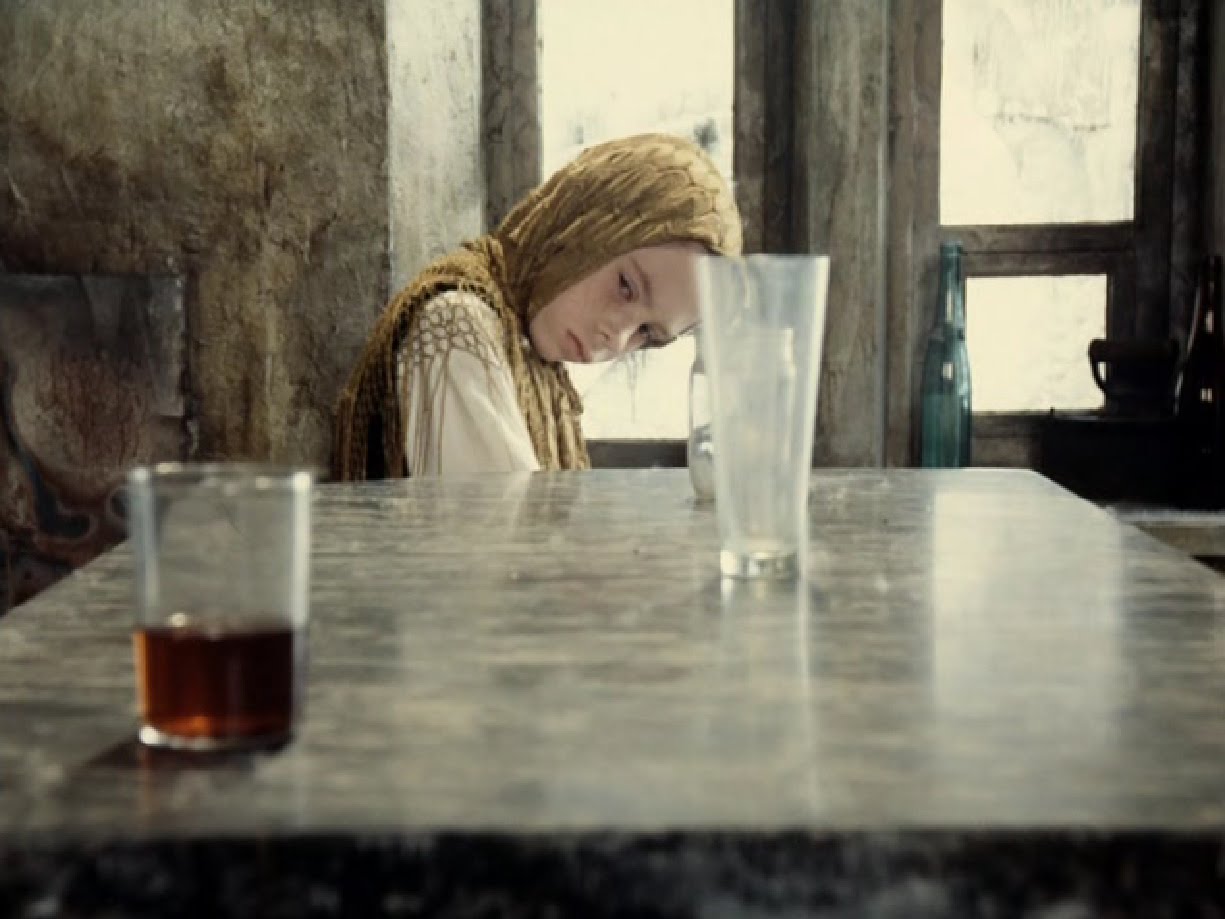
Andrej Tarkovsky, Russia’s master of the provocative and surreal, made his second sci-fi movie in 1979, coincidentally the same year Ridley Scott’s “Alien” came out; both feature painstaking beauty and elaborate directing, targeted at what is usually considered a B-genre. That’s where the similarities end, though, as Scott’s artful direction played to horror movie tropes. Tarkovsky’s is an existential pilgrimage, one that intentionally feels like a waking dream, yet manages to speak about the grim realities of postwar Russian.
Inspired by the nuclear factories stationed in the Soviet Union wilderness that broke down and became ‘no entry’ zones, this is set in an alternate reality of Russia, featuring a group lead by a guide (aka Stalker) through the infamous ‘zone’ – a place where normal rules of reality do not apply.
Starting off in a grimy sepia toned black-and-white filled with smoke shrouded and muddy streets, the movie switches to lush colour as they enter the ‘zone,’ with an emphasis on roving long takes that lull the viewer into a trancelike state for the rest of its heightened plotline. It’s by no means a movie for everyone (you’re either on board or not), yet for those who are open, Tarkovsky’s brand of cinema is like no other.
9. Pi (1998)
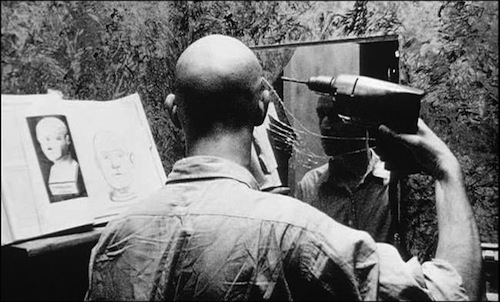
Darren Aronofsky truly set the precedent for his thought-provoking yet polarising brand of filmmaking with this late 90’s feature debut, delving deep into the existence of a troubled mathematician (Sean Gullette) and his obsessive quest to unlock the numerical key to human nature.
If that sounds about as exciting as an algebra powerpoint, you’d be dead wrong – Aronofsky shot in glorious grainy black-and-white with a sparse style inspired by the comic pages of “Sin City.”
This is all coupled with the voiceover and eccentric system of cutting, building an intimate repertoire with Gullette’s mind state. He may not always be a reliable narrator, but he is one we grow to understand and feel affectionate about, and as his life spirals into a paranoid hellhole, the audience is right there with him. Aronofsky started with a bang with this ballistic debut in what remains one of the most impressive cinematic descents down into the dark of the mind’s eye.